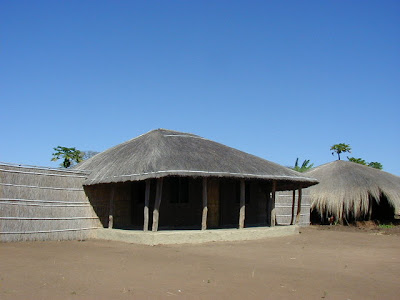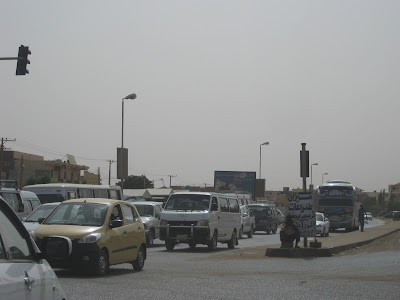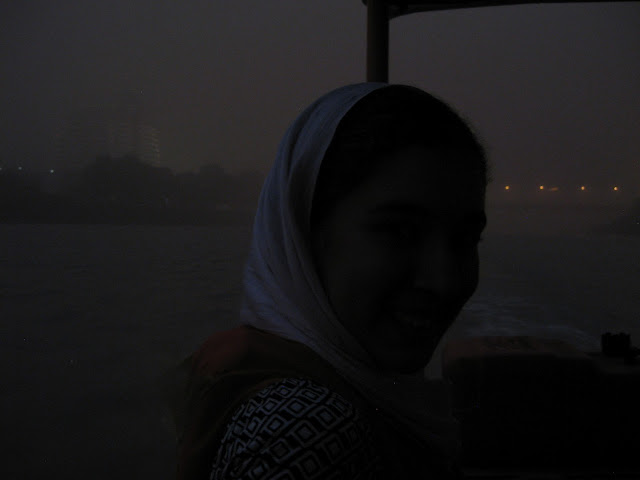On July 6, 1964, Malawi went from being a colony of Great Britian to a fully-independent member of the Commonwealth without so much as a single shot fired. In fact, the government was basically being run by a Malawian for several years before.
But let me back up. Malawi's people are mostly made up of about a dozen tribes. The major tribes, Chewa, Ngoni, Yawo, and Lomwe are all immigrants (isn't the whole world?). The Chewa come from Congo, the Ngoni from South Africa, the Yawo from Mozambique (either that or they are related to the Zulu from South Africa), and the Lomwe from Mozambique. Back in the day, Malawians traded with the Portuguese and Arabs. They first met the British through David Livingstone, after whose birthplace, our "commercial capital," Blantyre, is named.
In the late 1800s, the British claimed Malawi as theirs and called it British Central Africa.

They later changed it to Nyasaland, adopting the Yawo word for lake. In case you didn't know, Malawi is home to the third largest lake in Africa, which is probably what we're best known for, after being the birthplace of Madonna's kids, and the country that jailed homosexuals. Maybe soon we'll become famous for our female president?
 |
| Nyasaland flag of Malawi during colonial days |
 |
| with independence, we adopted the 'rising sun' flag |
In 1993, there was a referendum about allowing multi-party elections, and Malawians voted for choice. Consequently, HETLPNDHKB (that is to say, President Banda) lost the election in 1994 to Bakili Muluzi. The new constitution limited presidents to two (5 year) terms, so Bakili Muluzi, though he talked of a third term, was out after 10 years. My family moved to Malawi in these years. I'll remember him for saying he was the best beggar in the world because he knew how to get money from donor countries.
And then Muluzi's "successor," Bingu wa Mutharika won the 2004 election.
 |
| Bingu (an edited picture between Michelle and Barack Obama) |
Bingu created his own party less than a year after taking office. He easily won re-election in 2009, but didn't survive his full term, dying of a sudden heart attack 3 months ago. I'll remember him for the fuel crisis that dominated his last year and for changing the flag to this:
.svg.png) |
| Bingu's 'full sun' flag, supposedly denoting that we are a fully-developed country |
So what's Malawi like? Our population is about 15 million (2 million more than Zambia, 68% of Australia's population, 23% of France's population). So we have a lot of people, which I like to think is because Malawi is so peaceful that it attracted people coming from wars (Mozambique Civil War) or hotspots like Zimbabwe. Our 2009 elections were called the second most peaceful in Africa; I can't remember who said that, but I remember hearing it distinctly.
Malawians are really friendly people, so much so that Malawi is nicknamed the "Warm Heart of Africa." And Malawi is a free country. Freedom is relative, of course, but living in a country with less freedom makes me appreciate so much more the freedom I enjoyed in Malawi.
Most importantly, of course, Malawi is home. At least, I think it is. God bless Malawi! Mulungu dalitsa Malawi!
 |
| Zomba, I think |
 |
| Blantyre-Zomba road, I think |
 |
| most Malawians cook over wood-fires |
 |
| Mangochi district |
 |
| traditional hut |
 |
| Lake Malawi |









